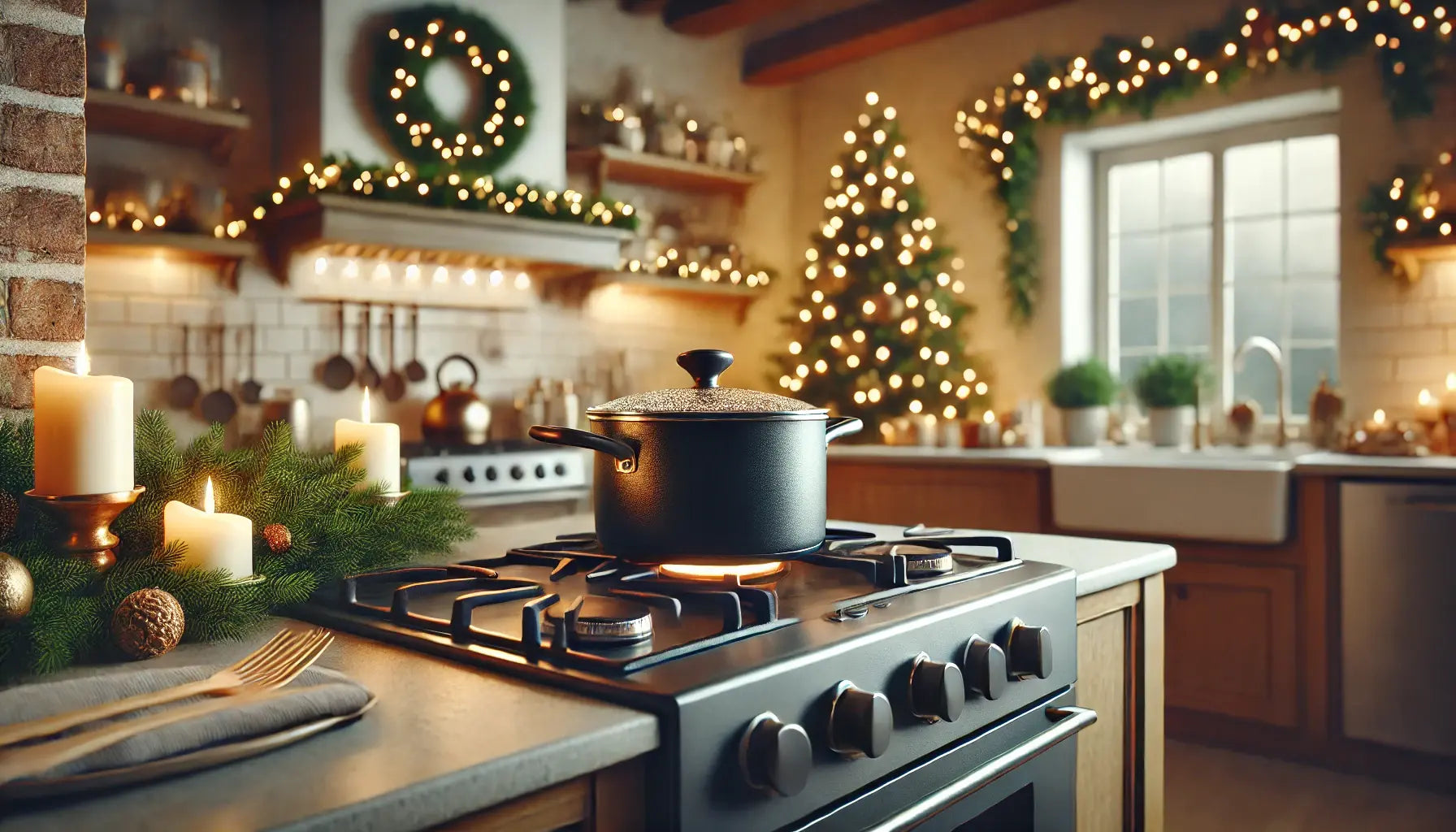
Tis the Season to Practice Kitchen Safety
Posted on
If you made it through Thanksgiving without a cooking mishap, congratulations! But the holiday season isn’t over yet, and the kitchen still poses significant risks. Thanksgiving may top the charts as the leading day for home cooking fires, but Christmas Day and Christmas Eve follow closely at #2 and #3, according to the National Fire Protection Association (NFPA).
The holiday season is about celebration and creating cherished memories, but it’s also the most dangerous time of year in the kitchen. Distractions from family, friends, and festivities — combined with the use of multiple cooking appliances — create a perfect storm for potential hazards.
The Alarming Reality of Kitchen Fires
Nearly half of all house fires in the U.S. are caused by cooking, with unattended cooking equipment being the leading culprit behind injuries and the second leading cause of fire-related deaths. A recent nationwide survey of 1500 Americans reveals some concerning trends:
During the holidays, the risks are compounded. With additional guests, alcohol, and heightened activity, it’s easy to lose focus — turning an everyday activity into a dangerous situation.
Who’s Most at Risk?
Unfortunately, older adults face the highest risk. Those aged 65-74 are 2.2 times more likely to die in a kitchen fire. More than half of cooking fire fatalities involve individuals aged 55 or older. If you’re hosting older family members, this is a critical time to discuss and practice kitchen safety.
Cooking fires also pose a significant risk in multifamily residences, where they are the leading cause of fires. According to the U.S. Fire Administration, between 2017 and 2019, these fires caused an annual average of 400 deaths, 3,875 injuries, and $1.7 billion in property loss. For those living in apartments or senior communities, awareness and sharing of kitchen safety tips are even more critical.
Simple Steps to Stay Safe in the Kitchen
The good news? Many cooking fires are preventable. Here’s how you can keep your loved ones and home safe this holiday season:
General Kitchen Safety Tips
- Stay alert: Avoid cooking if you’re tired, have consumed alcohol, or are on sleep medications. A staggering 25% of those killed in cooking fires were asleep at the time.
- Stay in the kitchen: Always supervise frying, grilling, boiling, or broiling food. For simmering, baking, or roasting, use a timer as a reminder.
- Create a safety zone: Keep kids and pets at least 3 feet away from the stove or areas with hot food and drinks.
- Keep combustibles away: Remove flammable items — paper towels, napkins, oven mitts, wooden utensils, loose clothing, and food packaging — from the stovetop area.
What to Do in a Fire
- Small grease fire: Cover the pan with a lid, turn off the burner, and let it cool. Never pour water on a grease fire.
- Oven fire: Turn off the heat and keep the door closed. If the fire doesn’t self-extinguish, leave the house and call 911.
- If you need to evacuate: Close doors behind you to contain the fire and call emergency services from a safe location.
- If you try to fight the fire: Ensure everyone else is evacuating and that you have a clear escape route. Keep in mind that over half of non-fatal injuries from cooking fires occur when individuals attempt to control the fire themselves!
Safety Considerations for Cooking with Oil
Frying with oil requires special attention to avoid accidents:
- Stay in the kitchen: Never leave oil unattended while frying.
- Watch for smoke: If the oil starts to smoke or smells unusual, turn off the burner and carefully remove the pan. Smoke is a warning sign the oil is overheating.
- Heat slowly: Always heat oil to the required temperature gradually.
- Prevent splatter: Add food gently to the oil to reduce the risk of splattering.
- Keep a lid nearby: If a fire starts, slide the lid over the pan and turn off the burner. Leave the lid on until the pan has completely cooled. Never pour water on a grease fire.
- Know when to evacuate: If the fire doesn’t go out or you don’t feel comfortable managing it, evacuate and call 911 from a safe location.
Let’s Make Kitchen Safety a Family Priority
The holidays are the perfect time to share safety knowledge. Whether it’s teaching young people learning to cook, reminding college students in dorms, or engaging with older adults, these conversations can save lives.
Cooking fires are preventable. With awareness, preparation, and a focus on safety, we can ensure this holiday season is filled with joy — not tragedy!
For more detailed resources on fire safety, visit the NFPA’s Home Cooking Fire Safety page.
